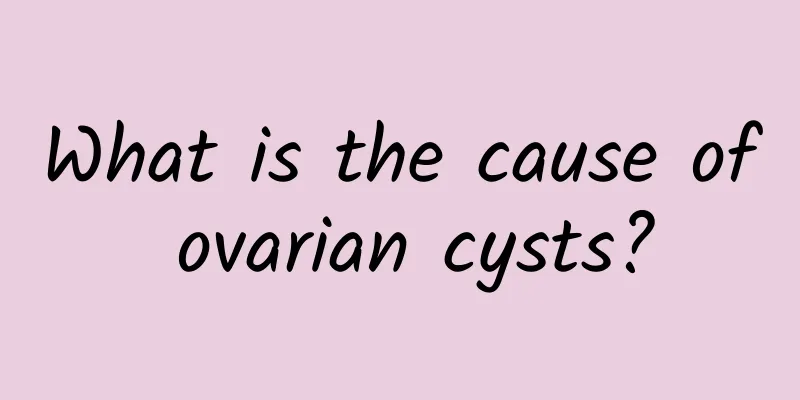Is bleeding from uterine fibroids dangerous?

|
Bleeding from uterine fibroids can indeed cause harm to your health, mainly manifested as anemia, pain, and a possible increased risk of infection. Bleeding is one of the common symptoms of uterine fibroids. The specific cause is a combination of factors such as changes in hormone levels, the location of the fibroids, and their effects on the endometrium. Hormone imbalances, especially high estrogen levels, usually aggravate the bleeding symptoms of uterine fibroids. Fibroids located below the endometrium often lead to more severe menorrhagia and increase the risk of anemia. Deformation of the uterine cavity caused by fibroid growth can also aggravate dysmenorrhea and bleeding, especially during menstruation. There are many ways to treat bleeding from uterine fibroids, including medication and surgery. In terms of medication, oral contraceptives, androgen drugs such as mifepristone, and GnRH agonists can help regulate hormone levels and reduce bleeding. In surgical treatment, uterine artery embolization can effectively reduce the blood supply to the fibroids and reduce the amount of bleeding. Minimally invasive surgery such as laparoscopic myomectomy can also remove fibroids while preserving the uterus and help control bleeding symptoms. For women who do not want to have children and whose lives are severely affected by fibroids, hysterectomy may be the last option. There are many ways to treat bleeding from uterine fibroids, including medication and surgery. In terms of medication, oral contraceptives, androgen drugs such as mifepristone, and GnRH agonists can help regulate hormone levels and reduce bleeding. In surgical treatment, uterine artery embolization can effectively reduce the blood supply to the fibroids and reduce the amount of bleeding. Minimally invasive surgery such as laparoscopic myomectomy can also remove fibroids while preserving the uterus and help control bleeding symptoms. For women who do not want to have children and whose lives are severely affected by fibroids, hysterectomy may be the last option. If you experience bleeding symptoms from uterine fibroids, you should seek medical attention promptly to obtain a professional evaluation and determine an appropriate treatment plan. Regular monitoring of hemoglobin and iron levels is also important to prevent anemia caused by bleeding. In terms of lifestyle, maintaining a healthy diet and moderate exercise can help improve immunity and alleviate symptoms. Try to avoid high-fat and high-sugar diets to reduce estrogen levels in the body. Reasonable stress management and adequate sleep can also relieve fibroid symptoms to a certain extent. Paying attention to changes in your own body and undergoing regular gynecological examinations can help detect and treat uterine fibroids and their related symptoms early. |
<<: Can you get pregnant if your endometrium is thick?
>>: Can Wuji Baifeng Pills treat pelvic inflammatory disease?
Recommend
Do you still need to eat starch to lose weight, otherwise you will easily gain weight again? Nutritionist Cheng Mingwei: Master 4 starch weight loss techniques
People who are trying to lose weight seem to have...
Diet therapy for amenorrhea
(1) Peach kernel and ox blood soup: 10-12g peach ...
Detailed analysis of the causes of ectopic pregnancy
The occurrence of ectopic pregnancy will cause a ...
Are you stress-induced obesity? Find out the 9 major factors of obesity! Dr. Liu Boen: 4 keys to healthy weight loss
According to statistics from some literature jour...
What are the symptoms of uterine fibroids and backache? What does uterine fibroids and backache indicate?
What are the symptoms of backache caused by uteri...
Can women with adenomyosis eat spicy food?
Patients with adenomyosis have two types of endom...
Detoxifying with fruits and vegetables helps you lose weight! 3-day high-fiber fruit and vegetable detox meal, stop and listen before trying
Vegetables and fruits are essential foods for the...
How to treat cervical erosion and how much does it cost
Cervical erosion is a terrible existence for many...
Causes of irregular menstruation in women
What are the causes of irregular menstruation in ...
What are the benefits of Chinese medicine sitz bath for vulvar leukoplakia? How is the effect of Chinese medicine sitz bath?
1. Leukoplakia vulvae is a common skin disease th...
What is the effective treatment for uterine fibroids?
Treatments for uterine fibroids include medicatio...
Home quarantine and isolation are so boring! Occupational therapists teach you 5 home exercises that can stretch your joints while sitting.
It is not possible to do strenuous exercise durin...
Choose the right time to exercise! Seize the golden hour in the evening
Fitness is an anaerobic exercise, while weight lo...
How much does it cost to treat Bartholinitis?
The key to treatment is early stage. Some patient...
What causes leg pain due to adnexitis?
As the number of patients with adnexitis increase...









